Prison restaurant serves up cut in reoffending
- Published
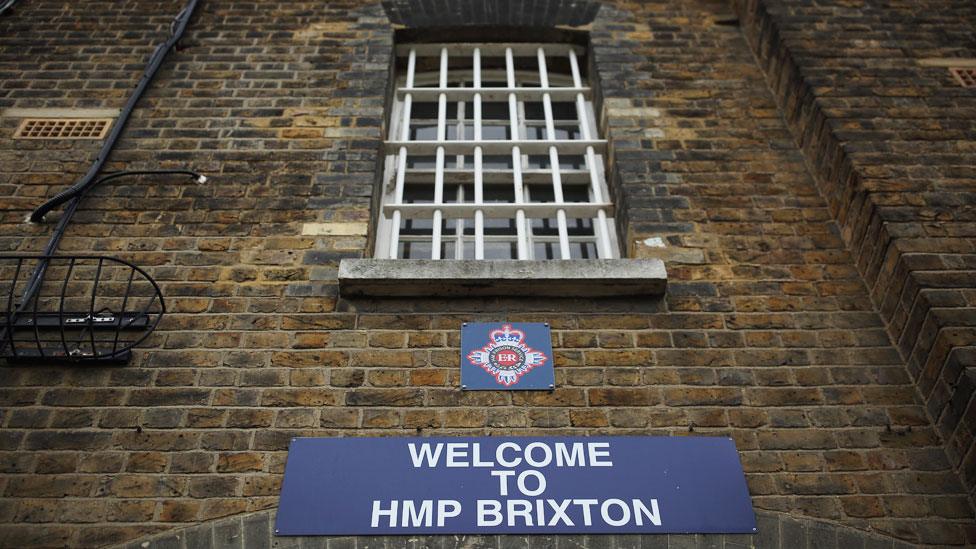
A high-quality restaurant in prison, where inmates can learn valuable skills in cooking and hospitality, is making a "significant" difference in cutting reoffending rates, say researchers.
The Ministry of Justice study suggests inmates trained in the Clink restaurant are much less likely to be stuck in the revolving door of returning to prison.
Clink chief Christopher Moore says it connects inmates with future jobs.
He says it means the training project "works on both sides of the walls".
A Ministry of Justice spokesman said the report shows that the Clink's "unique opportunity to work in a professional restaurant" reduces the chance of re-offending.
"Education and employment are key if we are going to drive down reoffending which costs the taxpayer £18bn each year," he said.
The research, from the ministry's Justice Data Lab, compared the behaviour after release of inmates who had been through the restaurant training project and other prisoners with similar records of offending.

It found that for those trained in the Clink's flagship restaurant in Brixton Prison, the reoffending rate was 11%, compared with 32% for similar inmates who were not involved in the project.
Plastic cutlery
Across four of the prisons where the project is running - Cardiff, High Down in Surrey, Brixton and Styal in Cheshire - 15% of those who had worked in the training scheme went on to reoffend within a year, while among the comparison group there was a 22% rate of reoffending.
Debbie: "I feel really positive because I've got something to look forward to"
The analysis says the impact of the Clink project is the equivalent to 16 fewer offences per 100 people leaving prison per year.
Among the wider prison population, levels of reoffending are even higher.
The most recent figures show that among adults released from custody, 37% have reoffended within a year, and among those who have been released from sentences of less than a year, the reoffending rate is 62%.
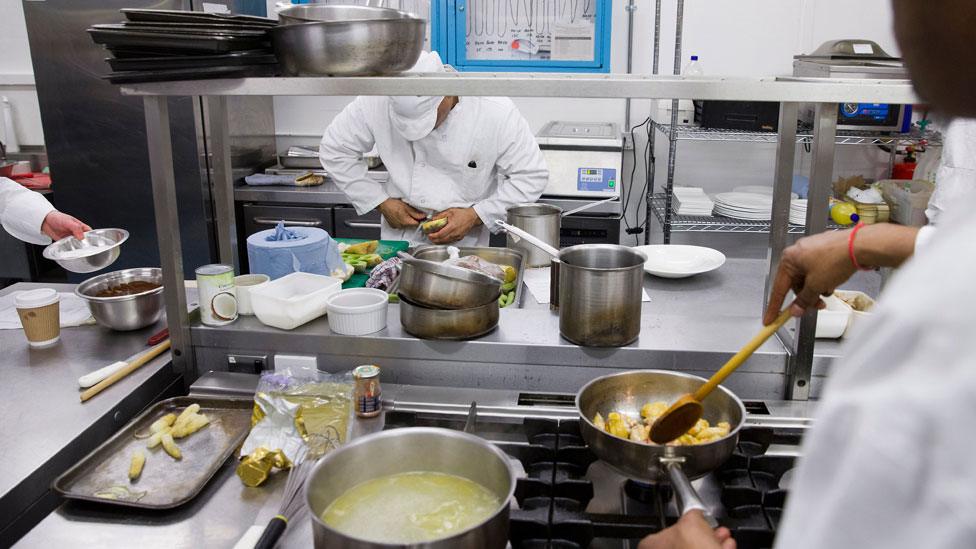
The restaurants, offering fine dining behind the jail walls, but with plastic cutlery and no alcohol, are open to the public.
Diners are pre-vetted and must under-go security checks at Brixton and High Down, due to the restaurants being located within the prison walls.
For the past five years, prisoners have been trained in preparing and serving food, while they serve their sentences.
But the purpose is to get inmates ready to go straight into jobs and to cut the risk of stepping back into crime.
'No friends, no jobs'
The Clink project is working with eight prisons, providing the experience and self-discipline of regular, skilled work.
It also helps prisoners to get City and Guilds vocational qualifications and to link them with employers in restaurants, hotels and the hospitality industry.
John Beck, a City and Guilds manager, says this is about giving people a "second chance" and overcoming the "significant stigma associated with hiring ex-offenders", which means many people leaving prison do not have access to the training they need to work.
"Educating prisoners is not a reward for committing a crime - it's about preventing further crime from being committed," he said.
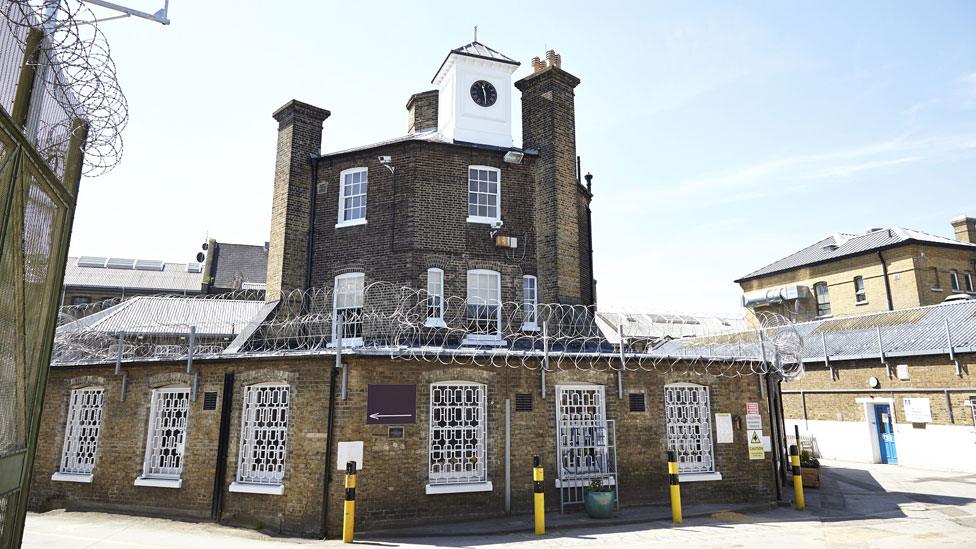
The Clink restaurant is inside Brixton prison
Mr Moore says that too often people leave prison with "no friends, no jobs and no money", creating conditions that are ripe for an ex-offender to go back to crime.
The Clink project works with offenders before and after release and organises the transition into jobs, in a catering industry that faces a shortage of skilled staff.
"It gets people back on track - so they're highly trained and used to working hard and in a team," he says.
Mr Moore wants to see more prison education projects that can link practical, vocational skills with the needs of future employers.
- Published16 October 2015
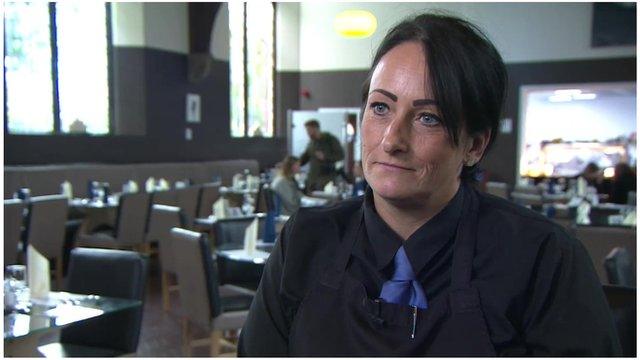
- Published20 July 2019

- Published25 July 2019
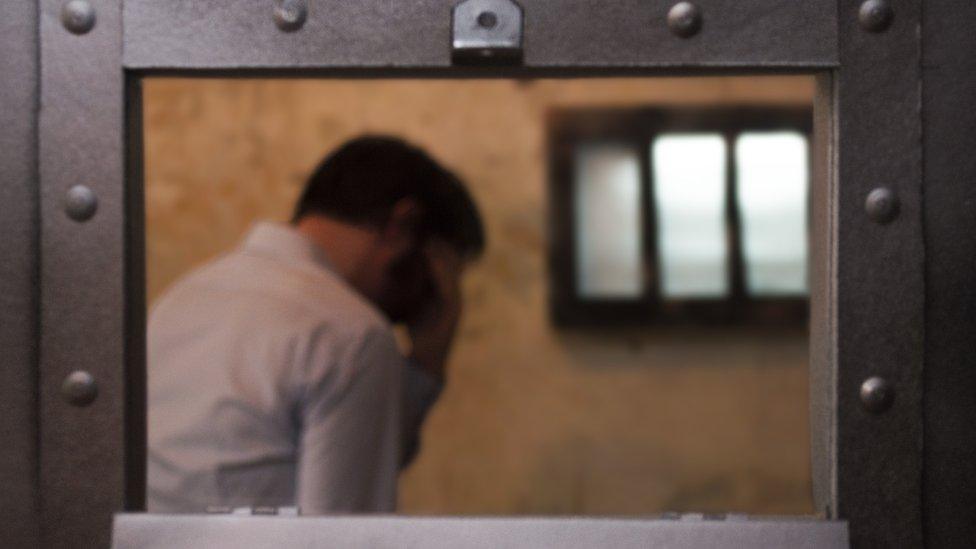
- Published23 July 2019
